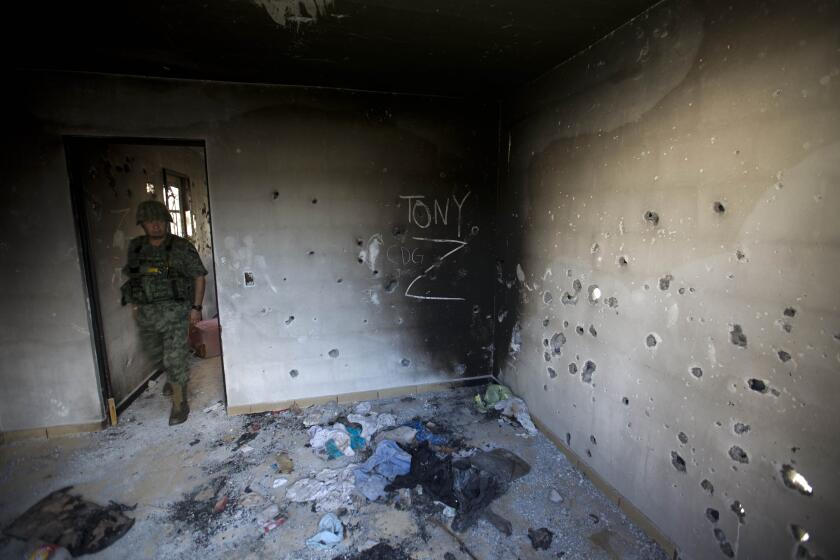Obama hopes Gates, policeman can work things out over beer
WASHINGTON — It started out as a casual suggestion: three guys working out their differences over a beer. But President Obama’s offer to play host to the cop and the professor entangled in a debate over racial profiling now carries the imprimatur of high-level diplomacy.
White House aides are downplaying expectations that the beer summit that Obama suggested last week will produce a resolution.
It’s set for Thursday, an administration official confirmed Monday night. Both Sgt. James Crowley of the Cambridge, Mass., Police Department and Harvard University professor Henry Louis Gates Jr. have agreed to come. That means Obama is on the hook to achieve some kind of agreement.
Bilateral get-togethers between Obama and a host of foreign leaders in recent months have gotten less attention. The image of the president trying to use a beer-drinking session to mediate an ages-old, highly volatile dispute has given new definition to diplomatic mission.
Obama offended Cambridge police when he said that they had acted “stupidly” in arresting the professor on a charge of disorderly conduct at his home July 16 after a reported possible break-in. Gates and Crowley have left open the prospect of suing one another. And none of the three has apologized, although Obama came close last week when he said his choice of words was poor.
What does the president expect from the meeting? White House Press Secretary Robert Gibbs said in an interview that it might be the first step toward a rapprochement.
“A lot of this is going to happen between them [Gates and Crowley], without the president, going forward,” Gibbs said. “You had a situation where, for whatever reason, both individuals couldn’t step back. And at least this will provide an opportunity to show people that that’s possible -- and hopefully start a bigger dialogue.”
The beer summit will be monitored closely. Many black leaders believe Obama was on target with his initial comments. They don’t want the moment to pass without a fuller discussion of racial profiling.
“His first response was appropriate, which was that the police officer’s behavior was stupid, not that the officer was stupid,” said Hilary Shelton, director of the Washington office of the National Assn. for the Advancement of Colored People.
“I don’t believe that [Obama’s] assumption is that, ‘We all overstepped a little bit, and now it’s all good and let’s have a beer and how’s your family,’ ” Shelton said. “If that were the intention, this is an incredible opportunity that would have gotten away from us. The issue is bigger than that. The behavior of that police officer still needs to be dealt with, and the issue of racial profiling still needs to be addressed.”
Law enforcement agencies will be watching closely for any sign that the president will favor his friend Gates over Crowley.
New details of the arrest emerged Monday in the form of the 911 call that first alerted police to a possible problem at Gates’ home. A dispatcher asked the caller about the race of the two men seen pushing through the door.
The caller, Lucia Whalen, did not identify either man as black, although she said one might be Latino. She also told the dispatcher that she had seen suitcases near the door and that the episode might have been an instance of someone having “a hard time with their key.”
Gates had been returning from a trip to China and could not get his front door open.
Whalen’s attorney, Wendy Murphy, said that “she never used the word ‘black’ to describe the man, ever. Not during the 911 call. Not afterward.”
Police ultimately dropped the charges against Gates, but the arrest became national news.
In fact, when aides helped the president prepare for his news conference July 22, they told him the incident had become a prominent story and could come up as a question. So Obama was ready. But he escalated the situation with one word he would quickly come to regret: “stupidly.”
Gibbs said: “I think if he would do it again, he would change a word.”
Obama’s conciliatory statement two days after the news conference helped defuse the issue, Gibbs said. But even had the president chosen to cast the actions of Cambridge police differently, an uproar may have been unavoidable, he said.
“Whenever you get race and politics, it’s like catnip,” Gibbs said, sitting behind his desk in his West Wing office. “All you need is a spark -- and cable television is happy to do that.”
--
Peter Wallsten in the Washington Bureau contributed to this report.
More to Read
Sign up for Essential California
The most important California stories and recommendations in your inbox every morning.
You may occasionally receive promotional content from the Los Angeles Times.










